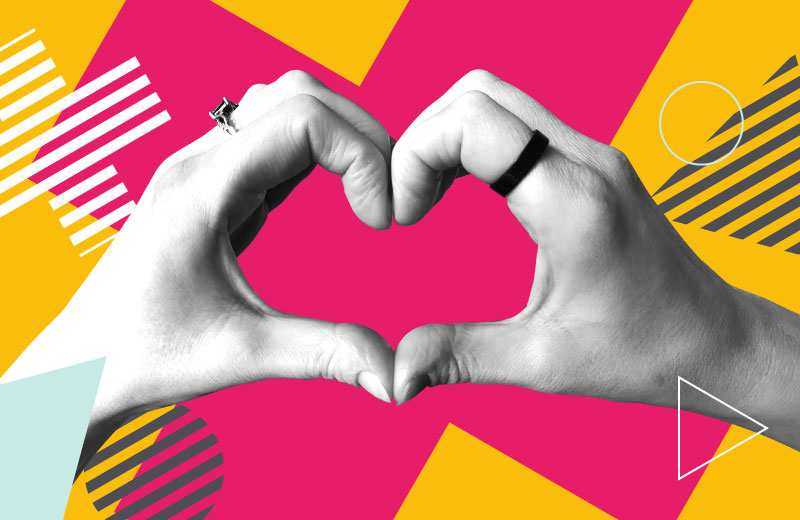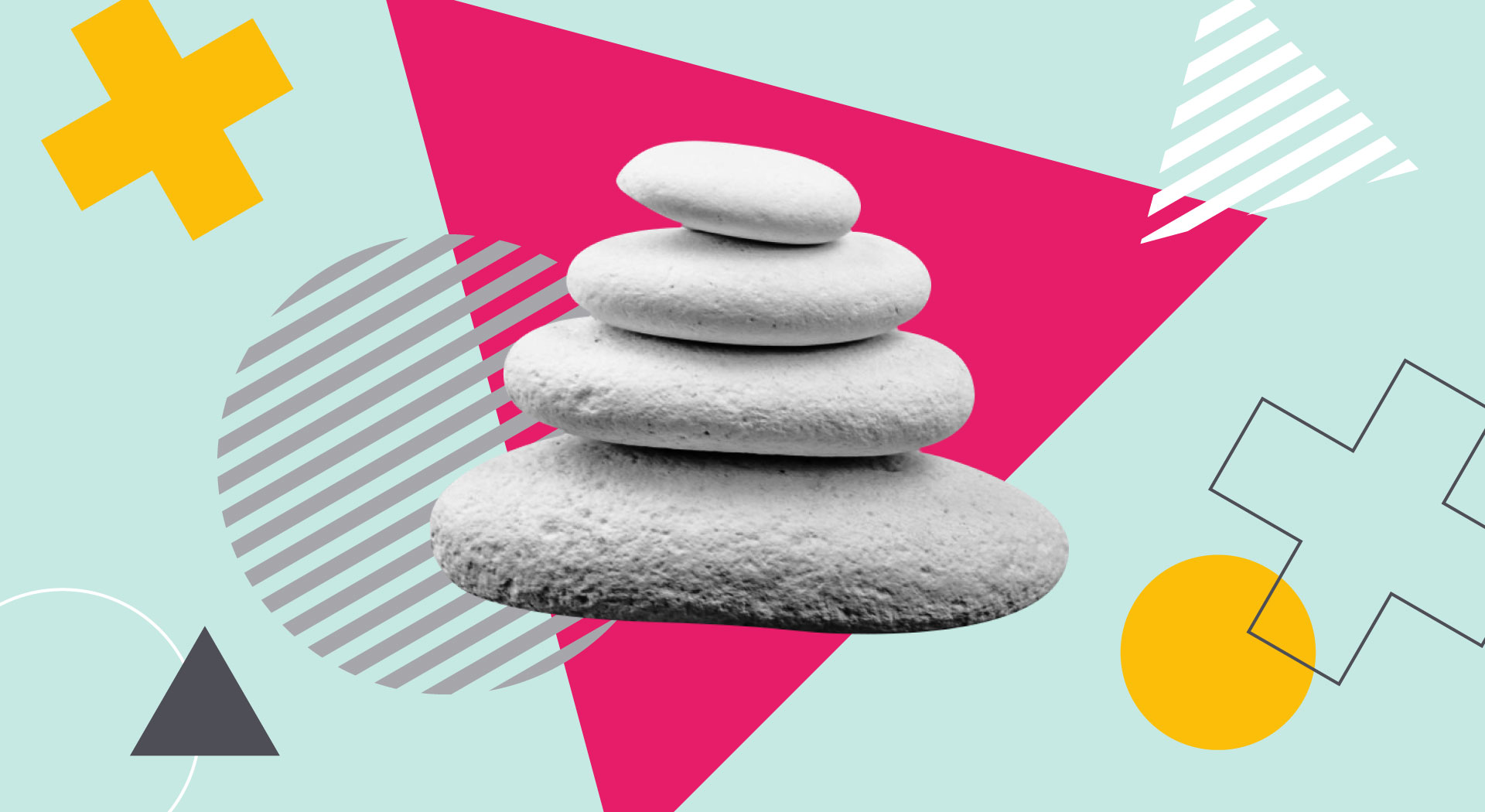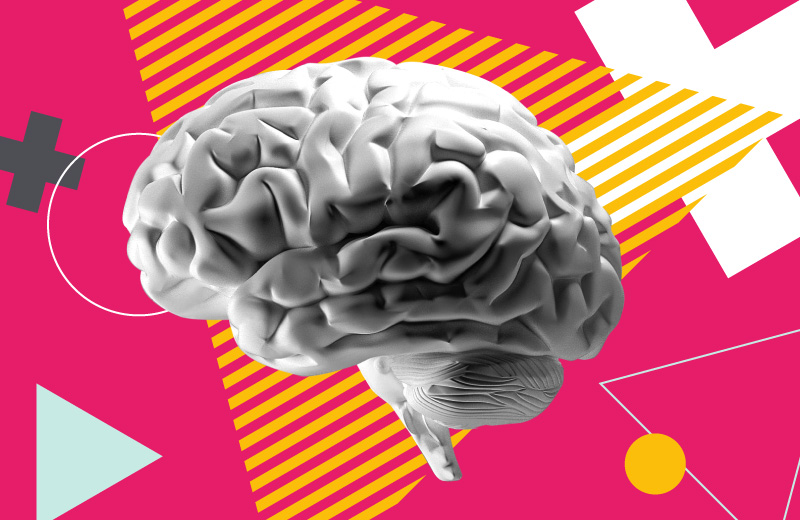

The link between wellbeing and creativity
Creativity and productivity are closely linked to mental and physical health. Being tired, stressed or ill means completing creative tasks can be very challenging. On the other hand, when feeling energised and focused, creative work can be exceptional. In addition, decisioning making is better and job satisfaction is increased.
My wellbeing challenges
To importance of that relationship has been highlighted to me over and over again during the past few years. It’s been a rollercoaster! In the last four years, I’ve lived through three major life crises occurring simultaneously alongside the pandemic. One of these was the breakdown of my marriage to the father of my children and everything that entailed – the actual split, moving out and buying a house on my own, managing and supporting my children’s mental wellbeing and the legal and financial side of the divorce.
During this process it became clear my eldest was especially having a hard time coping with the changes. It’s taken two years but he has just been diagnosed with autism. Being alerted to my son’s potential neurodiversity called into question how my brain works. On top of that, hormone changes in my body zapped my energy levels and made it hard to function at work and at home. In the last six months I’ve been diagnosed both with ADHD and as having started perimenopause.
I've burned out from trying to force my brain to be neurotypical for four decades. Pushing through and doing everything at once in a stereotypically ADHD way isn't sustainable. Although I feel I have a good few years left of being able to do that, the burnouts are getting harsher and longer. If I’m going to be a happy, healthy mum, girlfriend, sister and friend as well as successful creative director and business owner, I must look after my mental and physical health.

Therefore, for the health of Studio Bifrost and my own, I aim to look after my brain and body through the following activities:
HRT
I could barely get out of bed, let alone do a day of work or look after my children when perimenopause symptoms hit hard last year. Aside from the exhaustion, intense anxiety, depression and brain fog were among my numerous debilitating symptoms. While HRT does present a slightly increased risk of breast cancer, I’ll take that with the reduced risk of osteoporosis and dementia as well as actually being able to function! A lot of people can’t or don’t want HRT and that’s OK but for me it’s essential and I’m grateful I have that choice available. I’m aware my dosage will need to be altered as my natural hormone levels fluctuate so I’m keeping a track of adverse symptoms as they appear to track any patterns and take action if needed.
Diet
Yup, good ol’ diet and exercise are integral to looking after myself, what a surprise! It’s a cliche but it’s true that what you put into your body is what you get out of it. Reducing sugar, caffeine and alcohol, and increasing protein, fruit and vegetables are recommended for managing both perimenopause and ADHD symptoms as they help maintain energy levels and moods. I am pretty impulsive when it comes to eating, as an ADHDer so this isn’t easy but every little thing I do does help.

Exercise
Something I love about my house is that it’s half way between school and the studio and can walk to both. My boys complain that I get them to walk to school but I hope they’ll thank me later! On top of that, I try to practice yoga or do weights most days. Yoga has the added benefit of increasing mindfulness.
It’s taken a few months to get my HRT dose right but I seem to have regained my energy and I hope soon I can return to the kickboxing classes that I started before perimenopause hit hard. During Covid and with everything going on, I exercised intensely and for the first time in my life, almost had a six-pack just two years ago at 40 years old! I’m absolutely refusing to accept that age is an excuse for inactivity and am determined to get back to pre-perimenopause fitness.
Boundaries around working hours
If I’m going to maintain a healthy work/life balance and do things like exercise outside of work, I have to be boundaried with my working hours. Two of my "whys" are my boys and that means not working long hours so I can spend time with them. Not making time for my "whys" means not only will I burn out and become physically ill but I’ll be resentful and lacking in motivation for Studio Bifrost.
I work Monday to Friday from 9am to 5pm, but I adjust my schedule slightly when I need to take my boys to school or pick them up. I usually don't work on bank holidays, and I take regular time off to spend with my boys, boyfriend and friends and have some me time. I respect other people's work schedules and don't expect them to respond to messages outside of their work hours. I avoid checking my emails during weekends and holidays to prevent getting sucked into work unexpectedly.

Boundaries around workload
To maintain working hours, it's crucial not to take on too much work. This can be difficult for people with ADHD, like me, who tend to people-please. Overcommitting or agreeing to crazy deadlines can lead to rushed work, poor quality design, errors, and missed deadlines – resulting in unhappy clients and burnt out creatives. We aim to solve problems at Studio Bifrost so will always aim to offer an alternative if possible, but sometimes we have to say no. For instance, I would suggest completing some parts of a project before a short deadline and finishing the rest later. By reviewing the schedule and offering the best possible solution without overcommitting, it's possible to keep clients and colleagues happy in the long run. This is one of the reasons we say no to free pitches at Studio Bifrost.
ADHD management
Working with not against my brain is a big part in the puzzle to stay well. I don’t use neurodiversity as a reason not to do something, but sometimes I have to do things a different way to achieve the desired result. Forcing myself to do things in a neurotypical way can be exhausting and take much longer than a more ADHD-friendly way. My adjustments include things like picking a maximum of three important tasks (VITs) for the day, body doubling sessions with Kim Raine and using my trusty visual timer to help keep me on track, as detailed in my ADHD and creativity post.
Sleep and rest
Like a lot of ADHDers, I especially need my sleep but can struggle! If I follow all the steps above, I feel less stressed and more likely to sleep well. In addition, I try to manage my evenings and weekends so I get a good balance of time with my family and friends, household chores and me time. My current challenge is trying to maintain no screens after 9pm. I’ve started reading a non-fiction book to help reduce the temptation to pick up my phone!

A partnership made in heaven?
Feeling inspired? We'd love to help! We are a team of collaborators that enjoy nothing more than partnering with ambitious clients. Get in touch if you'd like to talk through your next project or get some advice.

Recommended
-

-
 Insights
InsightsADHD and creativity

